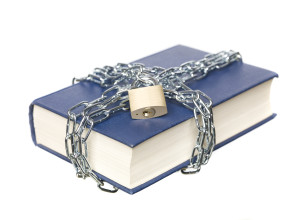
“Do you like green eggs and ham?
I do not like them, Sam-I-am.
I do not like green eggs and ham!”
Almost everyone recognizes the lines from Dr. Seuss’s beloved “Green Eggs and Ham.” Did you know that this book was once banned in the People’s Republic of China? Many books that are highly revered in academic circles as studies of literature are banned in different places around the world. September 25 through October 1 is Banned Books Week. It’s a time to remember that we have the freedom to read any book we choose.
Some Popular Banned Books
“Alice’s Adventures in Wonderland,” by Lewis Carroll has been banned in Hunan, China because of its anthropomorphized animals. Yes, this book that has been loved by children and adults was actually thought to teach children to regard animals on the same level as humans.
George Orwell’s “Animal Farm” and “Nineteen Eighty-Four” have both been banned in the USSR or Soviet Union. “Animal Farm” is still banned in North Korea. Both of these books have been studied by American students for generations, but many people around the world do not have the choice to read them.
The Bible is restricted in many countries, including China and North Korea, but it’s not the only religious book that has been subject to scrutiny. Many countries also censor the Quran. Understanding the literature of the Bible is key to understanding many themes in literature. These books are not only religious documents, but scholarly texts, too.
“Mein Kampf,” a political manifesto written by Adolf Hitler is another banned book which was recently republished in Germany. There were a great many people upset when the book came out this year, as it is considered very extremist. In one country, it’s illegal to distribute or print the book. While most people would not ever want to read this text, this does not mean it should not be available for those who do want to understand Hitler’s politics.
“Uncle Tom’s Cabin” by Harriet Beecher Stowe was once banned in the Confederate States due to its anti-slavery content. “Huckleberry Finn” by Mark Twain is another book that has been scrutinized due to its content about slavery and portrayal of African-Americans. Both of these books help today’s students understand the culture of America during this troubled time in our history.
We Have the Right to Choose
Banned Books Week is not about parents making the choice that their children aren’t ready for a particular book. Who could fault a mom or dad for refusing to let their young daughter or son read “50 Shades of Gray?” Banned Books Week is about making sure adults have access to reading material not based on what someone else thinks they should be reading, especially the government. It’s about open access to information, even when the ideas are unorthodox or unpopular.
Although many people read for learning, there are many books that we read just for entertainment’s sake. Books help us find our place in our community by opening our eyes to different worlds and viewpoints. Banning books isn’t going to change the fact that some people are going to read these stories. You have the right to censor what you read, but you don’t have the right to tell someone else what to read.
Celebrate the freedom to read books this year. Take some time this month to read one of the banned books that you might not normally pick up. Use it as a starting point to understand why some people are scared of the ideas presented by the author. Learn more about why the author wrote the book. Remember that you have the right to choose which books you do read, just as authors have the right to write their own stories.

